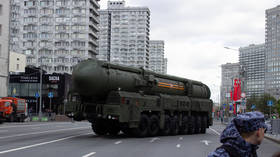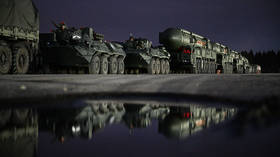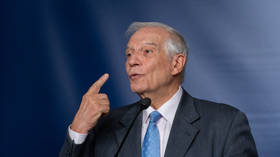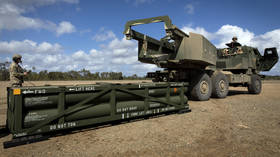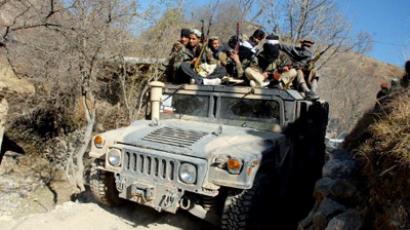US starts negotiations with Taliban
Qatar is hosting a pilot round of negotiations between US officials and Taliban representatives, to discuss steps to put an end to the war in Afghanistan, the New York Times reports.
Unnamed former Taliban officials said that among other issues, the parties would discuss POW transfer from Guantanamo to Qatar.Kabul expects a delegation from Qatar to visit the Afghan capital to clarify its position in the talks, said High Peace Council Secretary Aminundin Muzaffari.A delegation of eight Taliban delegates has traveled to Qatar via Pakistan. They are expected to set up a permanent office of the Taliban in Qatar.The Taliban has not yet provided official comments on the talks, while US officials have not denied the talks are taking place.The New York Times points out that such talks would be impossible without at least the silent approval of Pakistan. This, in turn, could possibly mean that the discord in American-Pakistani relations caused by recent US strikes on Pakistan’s territory, has softened.Islamabad now realizes that only through negotiation can it get the US to leave the region, says Khalil Nouri, a co-founder of the think-tank New World Strategies Coalition.“I really think that Islamabad has been pressured by the international community,” he told RT. “And at the same time, Islamabad must have come up with the idea that, ‘Look, I really think that the only way we can get Americans out of Afghanistan would be to talk to them.’ And once we assure the Americans that everything will be fine and this is the way out, then the Americans will leave and we can all be back to normal.”However, Sunday’s talks were underscored by a same-day announcement that an Afghan High Peace Council official had been kidnapped by the Taliban in the eastern province of Kunar on Friday.Mavlawi Shafihullah Shafih, a low-level member of the council, had traveled from Kabul to encourage insurgents to join the nascent peace process in light of the developments in Qatar."As soon as he [Shafih] left his car, the Taliban captured him," said Shahzada Shahid, another member of the 70-member council, who went to the Kunar capital of Asadabad in a bid to free Shafih with the aid of community elders, Reuters reports.Further highlighting the difficulties inherit in the peace process, the BBC reported Sunday that the Afghan government now intends to meet with the Taliban in Saudi Arabia in the coming weeks. The meeting will preempt the establishment of the Taliban office in Qatar, potentially shifting the focus away from the joint US-Qatari effort."Even if the Taliban office is established in Qatar we will obviously pursue other efforts in the region, including Saudi Arabia and Turkey," a senior Afghan government official told the network."Saudi Arabia has played an important role in the past. We value that and look forward to continued support and contact with Saudi Arabia in continuing the peace process," he said.Afghan President Hamid Karzai had previously expressed anger at the US and Qatar move to undercut his authority by pushing ahead with the peace process without fully consulting his government.The first rumors about the US considering peace talks with the Taliban appeared in October 2010, when President Karzai inaugurated the Afghan High Peace Council of 68 people to help bring some understanding between the Taliban and Kabul.Back then, the Taliban refused to take part in talks until 152,000 US-led foreign troops leave Afghanistan. Then-NATO commander in Afghanistan, US General David Petraeus refused to fulfill this demand.
However, Sunday’s talks were underscored by a same-day announcement that an Afghan High Peace Council official had been kidnapped by the Taliban in the eastern province of Kunar on Friday.Mavlawi Shafihullah Shafih, a low-level member of the council, had traveled from Kabul to encourage insurgents to join the nascent peace process in light of the developments in Qatar."As soon as he [Shafih] left his car, the Taliban captured him," said Shahzada Shahid, another member of the 70-member council, who went to the Kunar capital of Asadabad in a bid to free Shafih with the aid of community elders, Reuters reports.Further highlighting the difficulties inherit in the peace process, the BBC reported Sunday that the Afghan government now intends to meet with the Taliban in Saudi Arabia in the coming weeks. The meeting will preempt the establishment of the Taliban office in Qatar, potentially shifting the focus away from the joint US-Qatari effort."Even if the Taliban office is established in Qatar we will obviously pursue other efforts in the region, including Saudi Arabia and Turkey," a senior Afghan government official told the network."Saudi Arabia has played an important role in the past. We value that and look forward to continued support and contact with Saudi Arabia in continuing the peace process," he said.Afghan President Hamid Karzai had previously expressed anger at the US and Qatar move to undercut his authority by pushing ahead with the peace process without fully consulting his government.The first rumors about the US considering peace talks with the Taliban appeared in October 2010, when President Karzai inaugurated the Afghan High Peace Council of 68 people to help bring some understanding between the Taliban and Kabul.Back then, the Taliban refused to take part in talks until 152,000 US-led foreign troops leave Afghanistan. Then-NATO commander in Afghanistan, US General David Petraeus refused to fulfill this demand.It will not be easy for the US to pull off these talks as they have to appease Pakistan, Afghanistan and the Taliban at the same time, investigative journalist George Mapp explained in an interview with RT.“All members have to be involved in the talks for there to be any chance of peace,” he insisted. “I can see some backroom deal between Afghanistan and Pakistan, maybe possibly between the Taliban and Afghanistan, and the Taliban and Pakistan separately."


